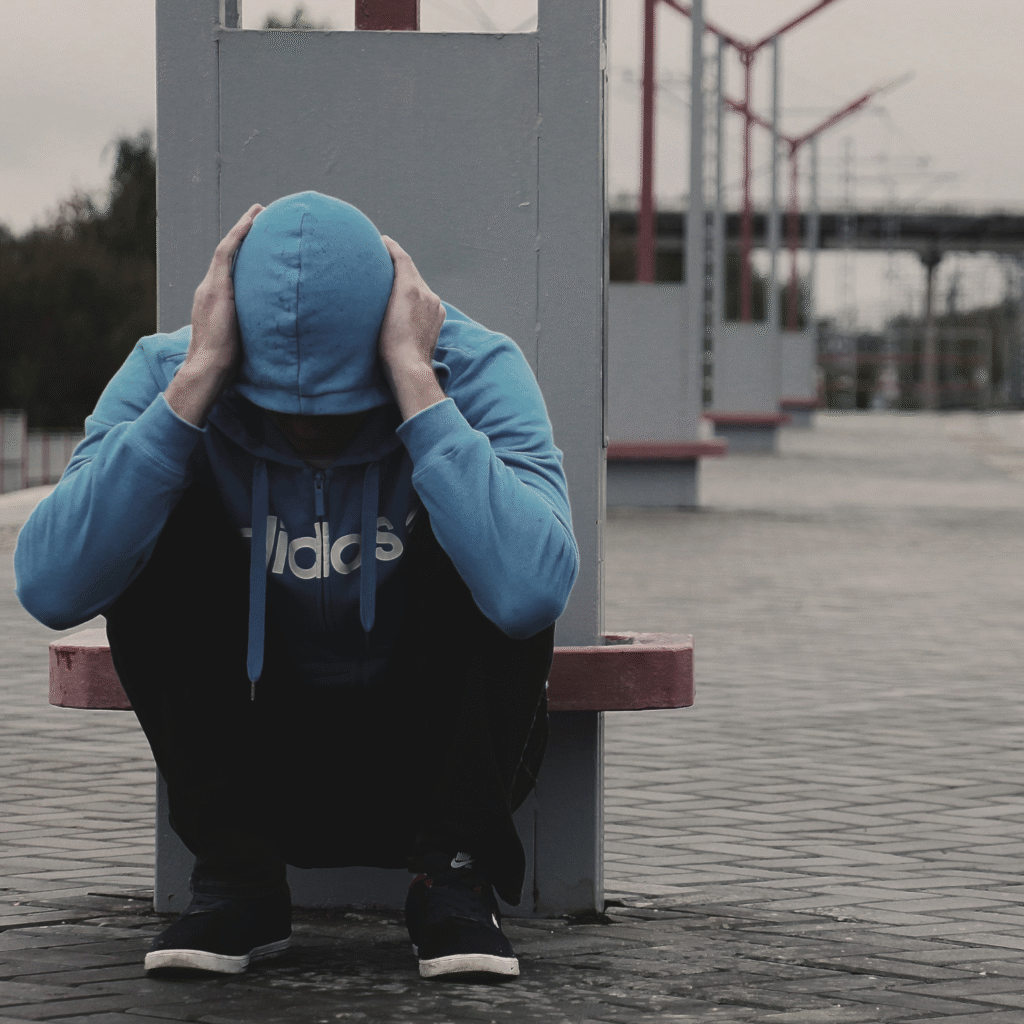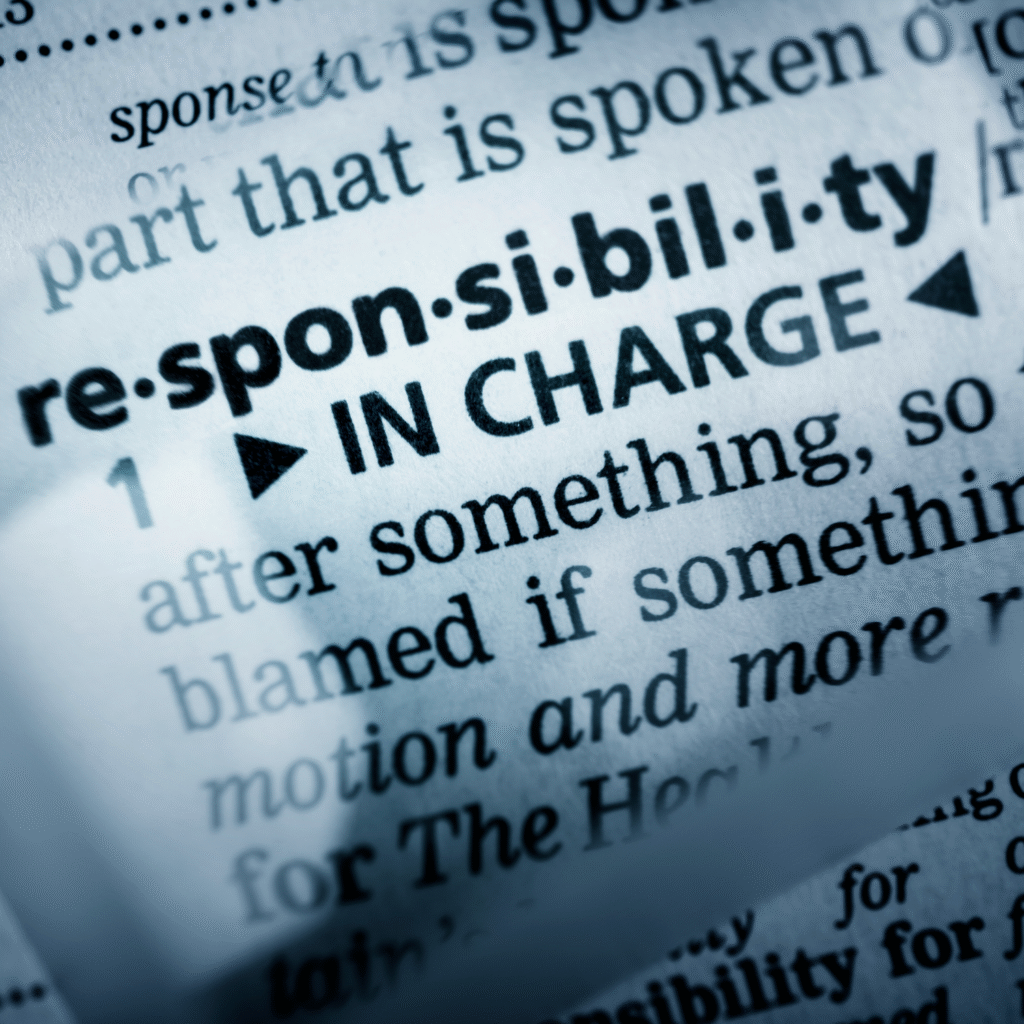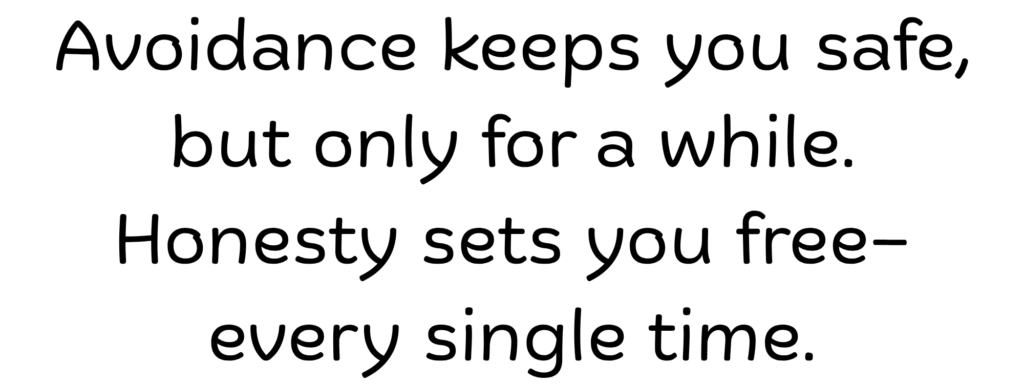We all have questions we’d rather not face.
The ones that make our stomach twist.
The ones that, if answered honestly, could change everything.

It’s human nature to steer away from discomfort. We busy ourselves, keep conversations light, and convince ourselves that “everything’s fine.” But underneath, there’s a quiet knowing—those unasked questions still linger, shaping our choices in ways we might not even realize.
The truth is, avoiding hard questions doesn’t make life easier. It just delays the clarity we need to grow.
And while facing them might be uncomfortable, the discomfort is often the first step toward freedom.
In this post, we’ll explore why we avoid certain questions, the cost of doing so, and a few powerful ones worth asking yourself if you truly want to live with intention.
Why We Avoid the Hard Questions
If you’ve ever put off thinking about something because “it’s just not the right time,” you’re not alone. There are a few common reasons we dodge difficult questions:
1. Fear of the Answer
Deep down, we might already know the truth—and it might require us to make changes we’re not ready for. It’s easier to stay in the comfort of “maybe” than to face a definite yes or no.

2. Fear of Discomfort
Some answers lead to tough emotions: sadness, guilt, regret, or even anger. So we protect ourselves by keeping the door closed.

3. Fear of Responsibility
Honest answers can bring new responsibility. If we realize we’re unhappy in our job, our relationship, or our lifestyle, we may feel pressured to act—and that can be overwhelming.

4. The Illusion of Busyness
Sometimes, staying busy is a form of avoidance. We fill our schedules so there’s no room for the stillness that would bring those questions to the surface.

The Cost of Avoidance
The tricky thing about unasked questions is that they don’t go away. They sit quietly in the background, influencing our choices, our mood, and even our health.
Avoidance can lead to:
- Lingering dissatisfaction – That sense that something’s “off,” even when nothing is obviously wrong.
- Misaligned living – Continuing habits, commitments, or relationships that no longer match our values.
- Missed opportunities – Staying in situations that keep us from discovering better paths.
Think of it like a leaky faucet. You can ignore it for a while, but eventually, the drip-drip-drip becomes impossible to ignore—and the longer you wait, the more costly the fix.
Why We Need to Ask Them Anyway
Asking the hard questions is like turning on the light in a dark room. It may not change the fact that there’s a mess, but at least you can see what’s there—and once you see it, you can do something about it.

Here’s what happens when you face them:
- You gain clarity. No more second-guessing or living in vague dissatisfaction.
- You reclaim your power. When you know the truth, you can make choices instead of feeling stuck.
- You live more intentionally. Your actions start to align with what really matters to you.
The Questions We Avoid—And How to Approach Them
Here are some examples of powerful, confronting questions worth asking yourself. Don’t rush through them. Give yourself space to really hear the answer, even if it’s uncomfortable.
1. Am I truly happy with where I am right now?
Not “am I okay” or “am I managing,” but am I genuinely happy? This isn’t about perfection—life will always have challenges—but about whether your daily life is nourishing you or slowly draining you.
If the answer is no, resist the urge to shame yourself. Instead, use the truth as a starting point to explore what changes could help.

2. Am I living for myself or for others’ expectations?
It’s surprisingly easy to shape our choices around what others want—parents, friends, society—without realizing it. This question forces you to see whether your life is truly your own.

3. What am I pretending not to know?
This one is uncomfortable because it bypasses our usual excuses. Deep down, we often know when something’s wrong—a friendship has turned toxic, a dream has been abandoned, a habit is harming us. Pretending not to know feels easier… until it isn’t.

4. What’s one thing I would change if fear wasn’t holding me back?
Fear has a sneaky way of disguising itself as logic:
“I can’t change jobs right now.”
“It’s not the right time to move.”
“I’m not ready to start that project.”
But if fear were completely off the table, what’s the first change you’d make? That answer reveals a lot about where your heart truly is.

5. Am I becoming the person I want to be?
This is less about achievements and more about character. Are your daily habits shaping you into someone you respect, someone you’d trust, someone you’d be proud to know?

How to Sit With the Answers
When you ask these questions, resist the urge to fix everything immediately. Sometimes the most powerful thing you can do is simply acknowledge the truth.
Here’s how to process them:
- Write it down. Seeing your thoughts on paper makes them harder to avoid and easier to understand.
- Be gentle with yourself. Self-reflection is not self-criticism. You’re here to learn, not punish yourself.
- Take one step at a time. If your answers reveal areas that need change, start small. Big transformations often begin with the tiniest, most manageable shifts.
The Freedom That Comes From Facing Them
The questions we avoid are often the ones that hold the key to our growth.
They strip away illusions and make us see what’s real—both the hard truths and the hidden strengths we didn’t realize we had.
And while the answers might lead to change, they also lead to something far more valuable: peace. Peace from knowing you’re not hiding from your own life. Peace from living in alignment with what matters most.

So, the next time a question comes to mind that makes you pause, instead of pushing it away, lean in. Listen. Your future self will thank you.





